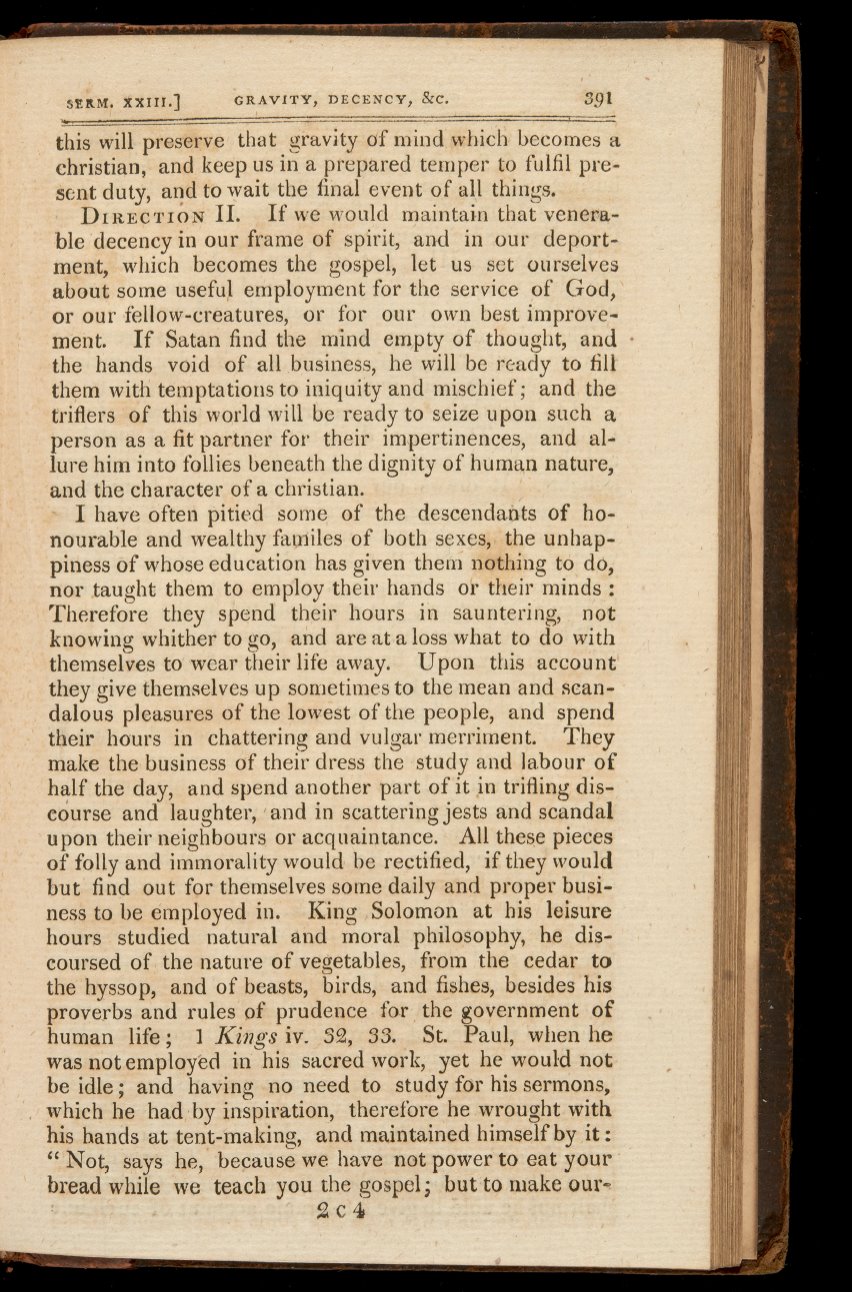

SERM.
XXIII.]
GRAVITY,
DECENCY,
&C.
391
this
will
preserve
that
gravity
of
mind which becomes
a
christian, and
keep
us
in
a prepared temper
to
fulfil
pre-
sent
duty, and to
wait the
final
event
of
all things.
DIRECTION
II.
If
we
would
maintain
that venera-
ble decency
in
our
frame
of
spirit,
and
in
our
deport-
ment,
which
becomes the
gospel,
let
us
set ourselves
about
some useful
employment
for
the service
of
God,'
or our
fellow-
creatures, or
for
our
own
best
improve-
ment.
If
Satan
find
the mind empty
of
thought,
and
the hands
void
of
all business, he
will be
ready to
fill
them with
temptations
to iniquity
and mischief; and
the
triflers
of
this
world
will be
ready
to seize
upon
such
a
person
as
a
fit
partner
for
their
impertinences,
and al-
lure
him
into
follies
beneath the
dignity
of
human nature,
and the
character of
a
christian.
I
have often pitied
some
of
the descendants
of
ho-
nourable and
wealthy fauiiles
of
both
sexes,
the
unhap-
piness
of
whose
education
has given them
nothing
to
do,
nor
taught
them to employ
their
hands or their minds
:
Therefore
they spend their hours
in
sauntering,
not
knowing whither
to
go,
and are
at
a
loss
what
to do
with
themselves
to wear their
life away.
Upon
this
account'
they
give
themselves
up
sometimes to the mean
and scan-
dalous pleasures
of
the lowest
of
the people,
and spend
their
hours
in
chattering
and vulgar merriment.
They
make the business
of
their
dress the study
and labour
of
half
the
day,
and
spend
another
part of
it
in
trifling
dis-
course and laughter,
'and
in
scattering jests and scandal
upon their neighbours
or
acquaintance.
All
these pieces
of
folly
and immorality would
he
rectified,
if
they would
but
find
out for
themselves some daily
and proper busi-
ness
to
be
employed
in.
King
Solomon
at
his
leisure
hours studied
natural and moral
philosophy, he dis-
coursed
of
the
nature
of
vegetables, from the
cedar to
the
hyssop,
and
of
beasts, birds, and
fishes,
besides his
proverbs
and rules of prudence
for the
government
of
human
life
;
]
Kings
iv. 32, 33.
St.
Paul,
when
he
was
not
employed
in
his
sacred
work,
yet
he
would
not
be
idle
;
and
having
no
need to study
for
his
sermons,
which he
had
by
inspiration, therefore
he
wrought with
his
hands
at
tent-
making,
and maintained himself
by
it
:
"
Not,
says he,
because
we
have
not
power to
eat
your
bread
while
we
teach
you
the gospel;
but
to make
our-
c4

















